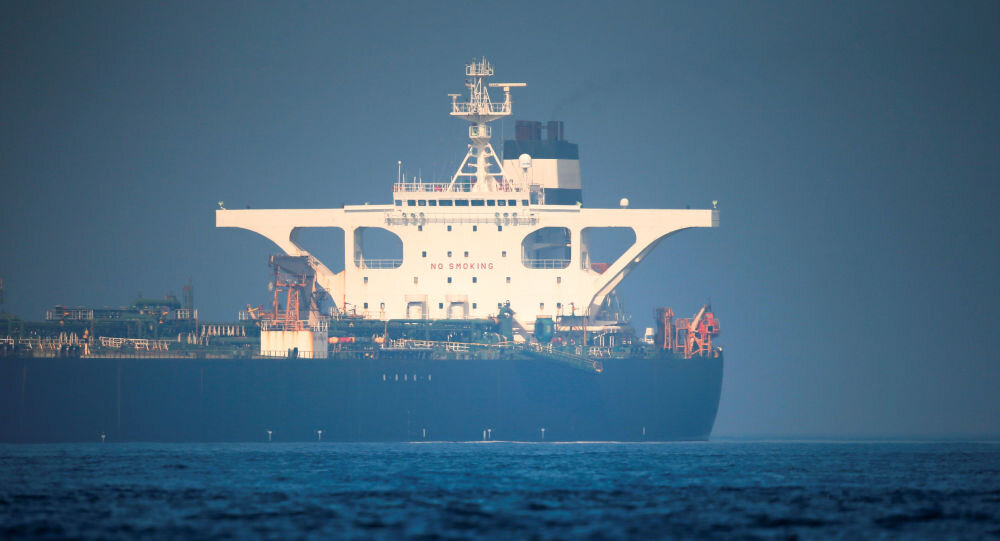U.S. blacklists Iran oil tanker in Mediterranean

TEHRAN - The United States on Friday blacklisted the Iranian oil tanker Adrian Darya following repeated warnings over its valuable oil cargo.
Previously known as Grace 1, the ship has been bouncing around the Mediterranean after being held for six weeks by Gibraltar on suspicion its cargo was bound for Syria, a suspicion which Iran had denied.
Despite Washington's efforts to keep it detained, it was released by the British territory and its every move is being followed with intense speculation.
The U.S. Department of Treasury on Friday said the vessel is "blocked property", and "anyone providing support to the Adrian Darya 1 risks being sanctioned”.
The ship's captain, Akhilesh Kumar, was also blacklisted under the order, which generally prohibits dealings with blocked property by U.S. persons.
Lebanon had earlier dismissed Turkish claims that it would receive the ship, which has a cargo of 2.1 million barrels worth around $140 million.
Maritime traffic monitors had shown that the Adrian Darya's latest listed destinations, which are not necessarily the next approved port of call, were in Turkey.
After tracking sites showed Mersin as its destination, it then switched to Iskenderun, prompting a reaction from Turkey's foreign minister Friday.
"This tanker is not heading actually to Iskenderun (in Turkey), this tanker is heading to Lebanon," Mevlut Cavusoglu said during a visit to Oslo.
Lebanon swiftly dismissed the scenario, stressing that it never buys crude oil because it simply does not have refineries.
"The energy ministry does not buy crude oil from any country and Lebanon does not own a crude oil refinery," Energy Minister Nada Boustani said in a statement.
She added that Lebanon had not received any docking request from the tanker.
"There is also no request for the Adrian Darya 1 oil tanker to enter Lebanon," Boustani said.
According to maritime traffic monitoring websites, the huge tanker is currently just west of the island nation of Cyprus, AFP reported on Friday.
Iran said Monday it had "sold the oil" aboard the tanker and that the owner will decide the destination.
It did not identify the buyer or say whether the oil had been sold before or after the tanker's detention in the Strait of Gibraltar, on Spain's southern tip.
The ship was seized by Gibraltar police and British special forces on July 4 and held on suspicion of shipping oil to Syria in breach of European Union sanctions.
But Iran denied the charge and said it could not name the actual destination due to United States "economic terrorism" and its sanctions on Iran's oil sales.
In July, Iran's Islamic Revolution Guard Corps impounded a British-flagged tanker in strategic Gulf waters. Britain called it a tit-for-tat move but Tehran denied any connection.
A court in the British territory ordered the tanker's release on August 15, despite a last-minute legal bid by the United States to have it detained.
The Adrian Darya 1 set sail for the eastern Mediterranean three days after it was released.
According to maritime traffic monitoring websites, the huge tanker has changed direction multiple times, following no apparent logic.
The specialised TankerTrackers social media account noted Friday after the vessel listed Iskenderun as its destination that little could be read into it.
"Consider this just a record update rather than anything substantial. We believe a transfer is still a few days away. Turkey will not import this oil," it said.
It earlier described it as "aimlessly moseying around the Med".
Tensions between arch-enemies Iran and the U.S. have soared ever since Washington stepped up its campaign of "maximum pressure" against Tehran and reimposed sanctions after leaving the landmark 2015 nuclear deal last year.
SP/

Leave a Comment